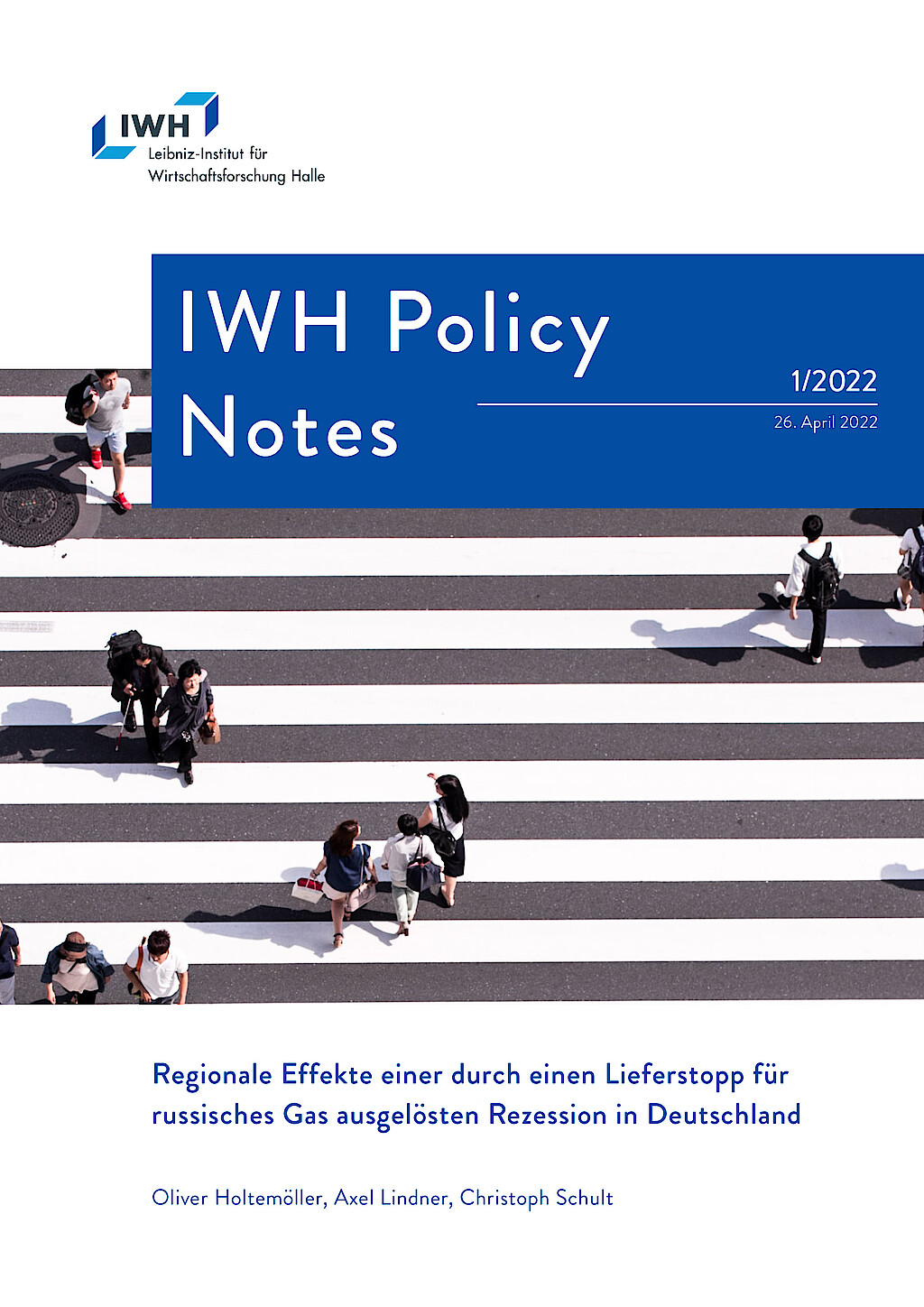Regional effects of a recession in Germany triggered by an import stop for Russian gas
Effects on value added and employment for all German districts
In case of a sudden stop of Russian gas deliveries to the European Union, they could not be fully replaced in the short term and gas prices would rise sharply again. If private households and, as long as stocks last, firms are not rationed, the storage facilities are likely to be used up at the turn of the year 2022/2023. Assuming that the gas quantities in the individual branches of industry are cut proportionally in spring 2023, there would be losses in value added that affect the other sectors of the economy as well. We expect a decline in gross domestic product of around 2% in 2023 for this case.
The extent to which the individual districts in Germany would be affected can be estimated based on the economic structure of these districts, because such a crisis would affect the economic sectors to varying degrees: The manufacturing industry as well as the mining and energy supply sectors would be hit particularly hard. The share of the economic sectors in gross value added varies greatly from district to district. If the decline in gross value added by economic sector is allocated to the districts in proportion to their respective share of the total value added of an economic sector, a differentiated regional picture emerges.
“In regions where the manufacturing sector is highly important, for example in many south German districts, particularly high losses in value added are to be expected,” says Oliver Holtemöller, Head of the Department Macroeconomics and Vice President at the IWH. In East Germany, the loss of value added is lower than in the west, because the manufacturing sector in East Germany accounts for a smaller share of total value added (14%) than in West Germany (21%). Due to differences in the labour productivity between districts, the expected effects on employment are not identical to the expected losses in value added: “The lower the labour productivity, the more employed persons are affected by a given decline in value added,” says Holtemöller.
Publication (in German):
Oliver Holtemöller, Axel Lindner, Christoph Schult: Regionale Effekte einer durch einen Lieferstopp für russisches Gas ausgelösten Rezession in Deutschland. IWH Policy Notes 1/2022. Halle (Saale) 2022.
Whom to contact
For Researchers

Vice President Department Head
If you have any further questions please contact me.
+49 345 7753-800 Request per E-MailFor Journalists

Internal and External Communications
If you have any further questions please contact me.
+49 345 7753-832 Request per E-MailIWH list of experts
The IWH list of experts provides an overview of IWH research topics and the researchers and scientists in these areas. The relevant experts for the topics listed there can be reached for questions as usual through the IWH Press Office.
Related Publications

Regionale Effekte einer durch einen Lieferstopp für russisches Gas ausgelösten Rezession in Deutschland
in: IWH Policy Notes, 1, 2022
Abstract
Ein Stopp der russischen Gaslieferungen würde zu einer Rezession der deutschen Wirtschaft führen. Nicht alle Regionen wären davon gleich betroffen: Vor allem wäre dort, wo das Verarbeitende Gewerbe ein großes Gewicht hat, mit einem deutlich stärkeren Einbruch der Wirtschaftsleistung zu rechnen als andernorts. Deshalb wäre Westdeutschland und dort insbesondere der Süden stärker betroffen als der Osten Deutschlands. Dagegen spielt für die Frage, wie viele Arbeitsplätze durch einen bestimmten Rückgang der Wertschöpfung gefährdet sind, die Höhe der Arbeitsproduktivität eine ausschlaggebende Rolle.





